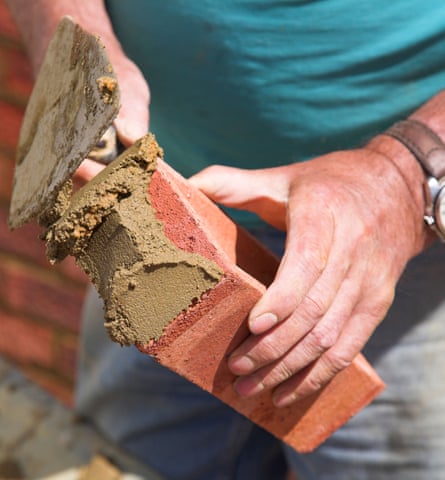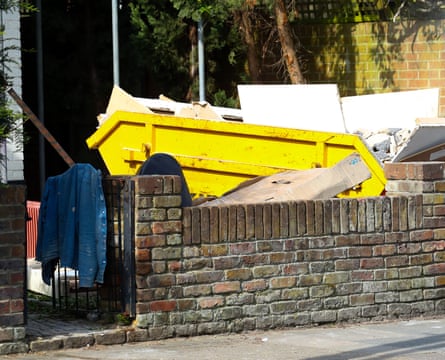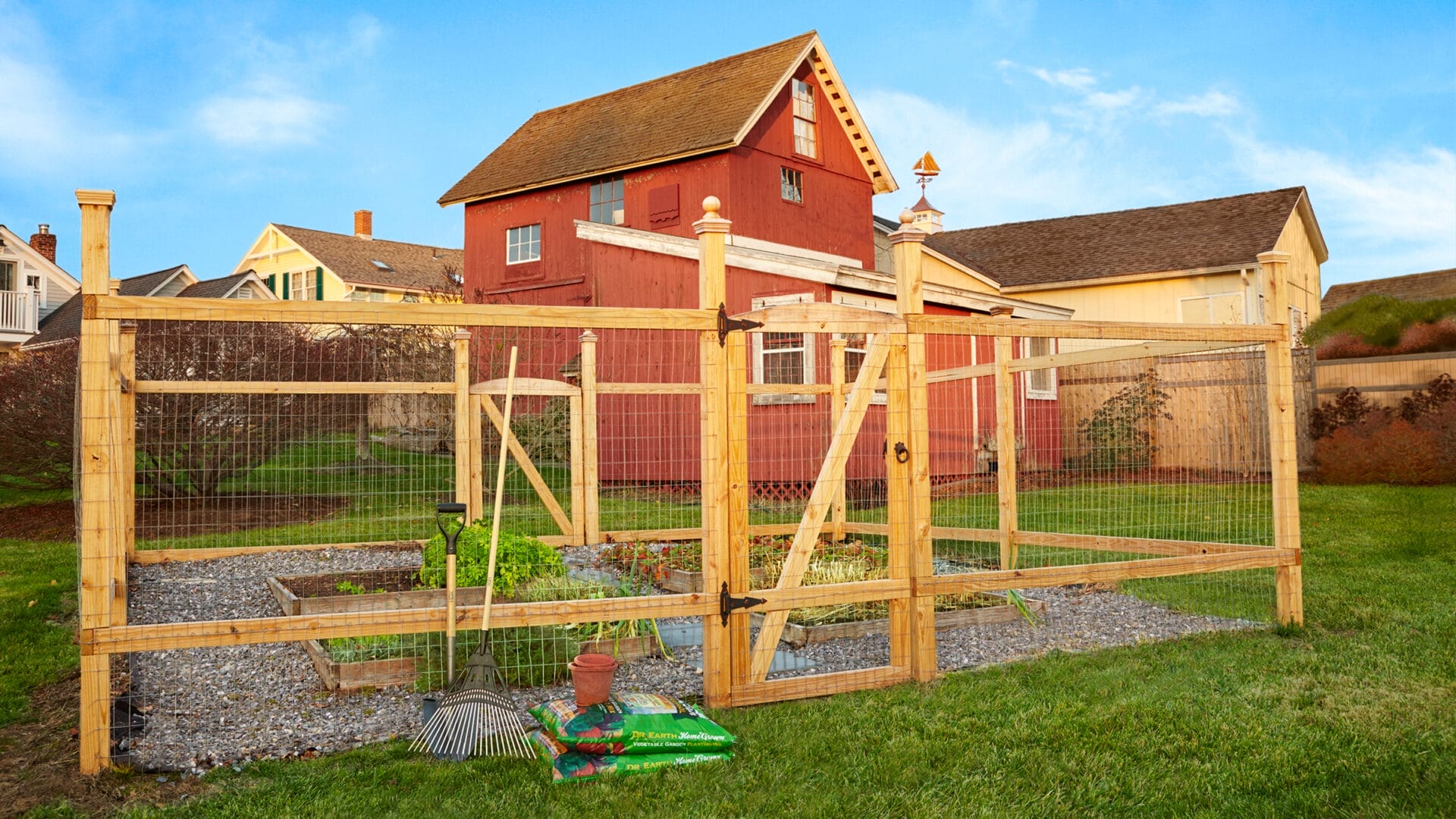Everybody needs good neighbours. And that’s never more true than when you are renovating your home. Moving in a skip, or a tribe of builders for a few weeks, or even months, can test the strongest of friendships – so what can you do to keep relations good?
On the right side of the party wall
If you are carrying out construction or excavation work on a boundary, or land close to neighbours’ homes, or undertaking building work that involves adjoining or shared walls, you may be required by law under the Party Wall Act 1996 to serve a notice, typically at least two months before the job begins.
You can serve the notice yourself using the free example “party structure notice” letter on gov.uk, or pay a party wall surveyor to do it for you – this normally costs a small fixed fee of about £100 or less.
But first, speak to your neighbours and find out whether they are comfortable consenting to the notice or if they want a party wall surveyor to draw up an award. This will dictate how the building work covered by the act should be carried out, and you will pay for it to be drawn up.
A good first step is to share the Royal Institution of Chartered Surveyors (Rics) party wall consumer guide with your neighbour, which explains the process.

If they then want to hire a party wall surveyor, ask them whether you can come up with a shortlist together, and agree on a single one you are both happy with, to act impartially for both of you. You should then ask that surveyor to serve your notice.
If you fail to agree on a single surveyor, then you, as the homeowner carrying out the work, will have to pay for two: one for you and one for your neighbour.
Most surveyors charge between £100 and £200 an hour to draw up a party wall award, depending on where you live, and you may have more than one neighbour you need to serve a notice to, so costs can easily run into thousands.
Always try to agree on a surveyor who is a member of Rics, advises Michael Cooper, a Rics fellow who is head of neighbourly matters at Cooper’s Building Surveyors. All Rics surveyors undergo professional training, abide by a code of conduct and have a complaints handling procedure. “There’s redress against Rics surveyors acting inappropriately or illegally – or simply not doing a very good job,” he says.
You can find one via the find a surveyor tool on the Rics website.
Look for one who is also a member of the Pyramus & Thisbe Club, a group for party wall surveyors.
Communication is key
Ideally, tell your neighbours what is going to happen on site, before it happens, and update them about any issues that might affect them.
For example, if you can, give them notice of deliveries that will block the road or the arrival of a skip on a street where there is limited parking.
“Keep neighbours informed about when builders are going to start work, any likely noise that’s going to happen, the level of disruption, skips and major deliveries,” says Brian Berry, the chief executive of the Federation of Master Builders.
If an aspect of your work seriously disrupts, or inconveniences, your neighbours, and they cannot stop you going ahead with your plans, it may cause an upset.
The best way to avoid this kind of problem is to be as open and collaborative as possible from the start, says Alicia Drummond, an adolescent therapist and the founder of TeenTips.co.uk. “Give them time to adjust to the idea, and acknowledge their feelings,” she adds.
For example, you could say: “I know the idea of us doing this extension is upsetting for you: if there is anything we can do to make it easier, please let us know.”
But the reality, Berry says, is, “no one can wave a magic wand … It is going to be inconvenient.”

Ultimately, all you can do is explain that you need to get the work done, and you will try to keep them informed and minimise disruptions as much as possible.
Whatever happens, don’t take a neighbour’s objections personally. “They are protecting their assets in the same way that you are trying to maximise yours,” Drummond says.
Employ a considerate builder
Before the project starts, offer to introduce your builder to your neighbours and make them aware of the hours tradespeople will be working.
Your neighbour may have a say, via the party wall award, over when certain works governed by the Party Wall Act can take place. Otherwise, your builder should only have to abide by the local authority’s rules.
“In most cases, it’s generally OK to carry out building work between 8am and 5pm on a weekday and Saturday morning,” says Jason Orme, a property expert for the Homebuilding & Renovating Show.
Ensure your builder sticks to the hours set by your local authority, and only carries out party wall works during the hours agreed in your party wall award. You could also ask all your tradespeople to take care not to disturb neighbours unnecessarily by, for example, shouting or playing loud music while working outside. “If you choose a reputable builder, they will be concerned about their own professional reputation,” Berry says. A good builder will also have experience communicating and understanding people’s concerns.

Remember to say thank you
When the work is complete, it is polite to thank your neighbours for putting up with all the disruption. As a goodwill gesture, you could pay for their windows to be professionally cleaned of any dust your builder has created.
There is, however, no need to offer any compensation for the inconvenience they have suffered, Orme says.
“The best way to repair any fraught relationships is with a bottle of wine, some toys for the kids and a cheery disposition,” he adds.
“You’ll never be able to reconcile with some neighbours – but that’s life.”
Protecting your deposit and home
Once you have found someone to do your work you will need to sign a contract and hand over a deposit. Before you do, make sure your deposit is protected – a good company should be signed up to a scheme to insure your money against it going out of business. Ask for details before you pay. Most schemes let you check on their websites for companies that are registered with them.
“If a builder goes bust and there is no insurance protecting the customer, they would have to go down the creditor route, or, if they paid their deposit with a credit card, may be able to claim that money back from the credit card company,” says Rico Wojtulewicz, the head of housing and planning policy at the National Federation of Builders.
Unfortunately, many tradespeople do not take credit card payments, so this might not be an option.
Also get details of the builder’s insurance and make sure it is up to date and will cover damage to your property or if anything happens to a neighbour’s home.
Your home insurance is unlikely to cover problems resulting from major work such as a loft conversion or extension. You should tell your insurer before you get this kind of work done, as it could have an impact on any claim you make.
How to get on with your builder
At the heart of a successful home improvement project is a good builder – and your relationship with them can help everything go smoothly. Eddie Marku at ProntoBuild, based in central Ruislip, has tips on how to get on:
Trust your builder and communicate with them. If your builder is experienced there’s nothing they wouldn’t have encountered before. They’ll help you along with it.
Take advice. Use research to determine what you want – the advice from your builder will help you achieve it by tailoring things for your project specifically.
Buy the things you are supplying in good time. Have them ready and on site for when they’ve been requested. Lead times (especially in the current climate) can vary hugely.
Consider all aspects of a decision carefully before making a final choice. Indecisiveness and changing your mind frequently leads to a messy project.
Don’t try to remember – when your builder asks you for something either ask for it in writing or write it down. It’ll make your life a whole lot easier when dealing with suppliers. Anything you’re unsure of, ask and clarify with your builder before purchasing.
The builder should be able to get hold of you (within reason) each day in case there are decisions to be made. It’s ideal to have a face to face chat, though that’s not always possible. Weekly meeting are good to resolve big decisions and confirm plans.
You should be able to go on site each day if you just want to have a look around and see progress. But ideally it’s best to let the workers get on with it throughout the day. Hanging over their heads won’t make the project proceed any faster.
You’ll always have a designated person which is your main point of contact. Speak to that person with all queries and communication to avoid confusion.









